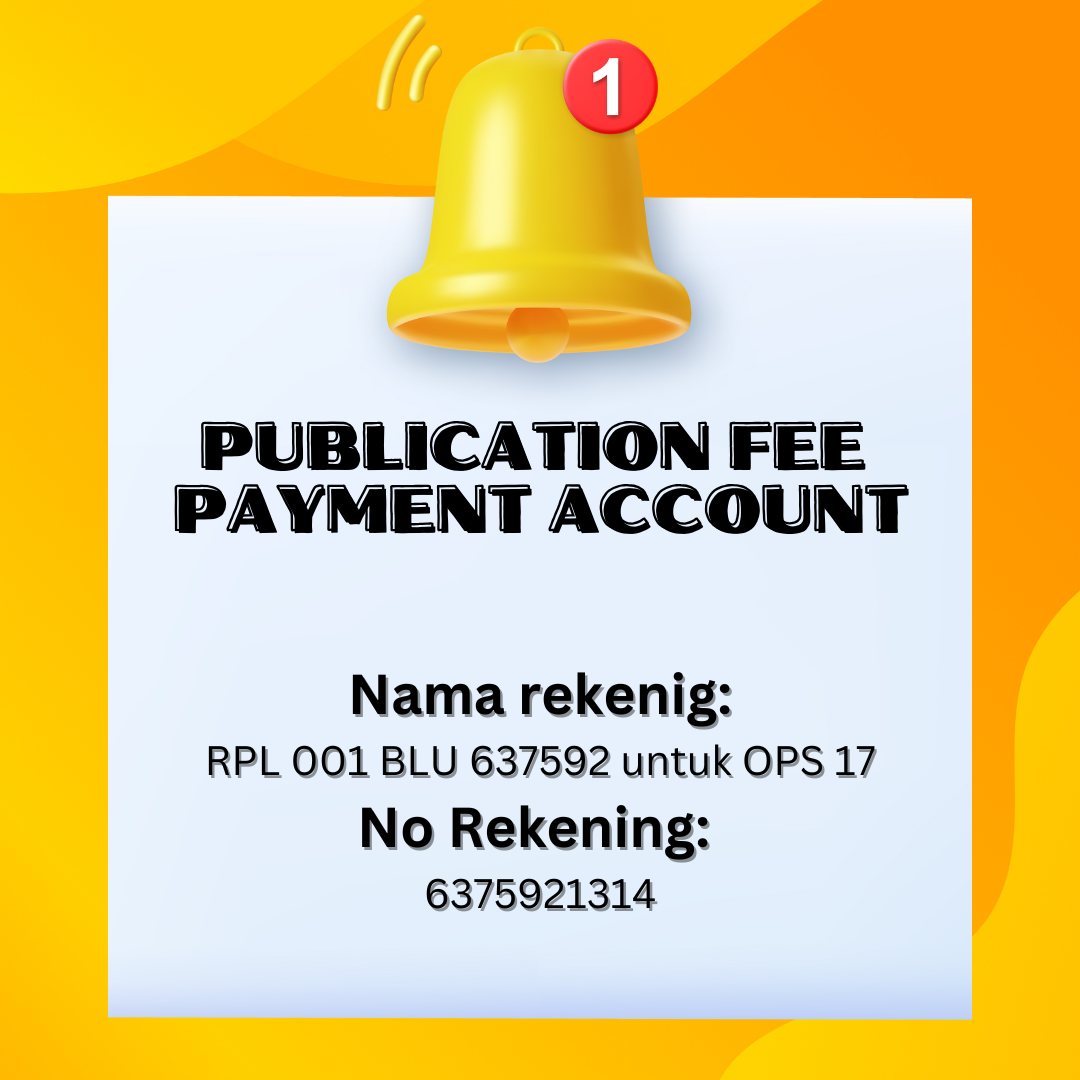Korelasi Efikasi Diri dengan Tingkat Intradialitic Weight Gain (IDWG) Pada Pasien Gagal Ginjal Kronik
DOI:
https://doi.org/10.58774/jourkep.v3i1.68Keywords:
Chronic Kidney Disease, Interdialytic Weight Gain (IDWG) , Self-efficacyAbstract
Background: Kidney failure in carrying out its functions at the terminal stage requires treatment in the form of hemodialysis. In hemodialysis patients, adhering to fluid intake restrictions has a very vital role to prevent further complications. The success of fluid and diet management in therapy is measured by the level of Interdialytic Weight Gain (IDWG). One of the things that affects IDWG during the hemodialysis therapy period is self-efficacy.
Purpose: To determine the relationship of self-efficacy with the level of Interdialytic Weight Gain (IDWG) of chronic kidney disease patients in the hemodialysis unit of RAA Soewondo Pati Hospital.
Methods: This study is a correlational analytical study, with a cross-sectional research design, a sampling method using consecutive sampling, with a total sample of 68 respondents and data collection using questionnaires.
Results: The results of this study found that respondents with high category self-efficacy and IDWG levels in the mild category were 38 respondents (50.5%), the results of the analysis with the spearman rank correlation test obtained p value = 0.000< α (0.05) which can be concluded to be a relationship between self- efficacy and the interdialytic weight gain (IDWG) level of chronic kidney disease patients in the hemodialysis unit of RAA Soewondo Pati Hospital. Conclusion: There was a significant relationship between self-efficacy and interdialytic weight gain (IDWG) levels of chronic kidney disease patients in the hemodialysis unit of RAA Soewondo Pati Hospital.
Downloads
References
Aziza, K., Affifah, E., & Siswanto, R. A. (2017) “Hubungan Kepatuhan Diit Cairan Dengan Interdialytic Weight Gain (IDWG) Pada Pasien Chronic Kidney Disease (CKD) Stage V Di RSUD Dr. Tjitrowardojo Purworejo”. Naskah Publikasi, 1, pp. 1–12.
Bandura, A. (2008). Self efficacy. Available at: http://www.uky.edu/~eushe2/Bandura/BanEncy.html
Dewi, Y., Pujiastuti, T.T., Maria, A. (2022) “Hubungan Interdialytic Weight Gain (IDWG) dengan Hipertensi Intradialisis pada Pasien yang Menjalani Hemodialisis”. Jurnal Keperawatan Klinis dan Komunitas. 6(3), pp. 156-165. https://doi.org/10.22146/jkkk.75309
Fazriansyah, Putra, F., & Pringgotomo, G. (2018) “Hubungan Antara Kepatuhan
Mengontrol Intake (Asupan) Cairan dengan Penambahan Nilai Inter-Dialytic Weight Gain (IDWG) Pada Pasien Yang Menjalani Terapi Hemodialisis Di RSUD Kotabaru. Dinamika Kesehatan, 9(2).
Floresa, P. G. (2015). Beberapa Faktor Risiko Gagal Ginjal Kronik di RSD dr.
Soebandi. Universitas Jember, Jember.
Ginting, E. B. (2019) Pengaruh Usia, Jenis Kelamin, dan Lamanya Hemodialisa Terhadap Nilai Interdialytic Weight Gain (IDWG) Pada Pasien Dewasa Gagal Ginjal Kronik yang Menjalani Hemodialisa Rutin di RSUD Budhi Asih. In Doctoral dissertation. Universitas Binawan.
Giovannetti, S., Barsotti, G., Cupisti, A., Morelli. E., Agostini, B., Posella, L., Gazzetti, P., Dank L., Aloisi, M., & Antonelli. A. (2004) “Dipsogenic Factors Operating In Chronic Uremics on Maintenance Hemodialysis”. Nephron, 66 (4), pp. 413-420.
Haloho, F. N. W. (2017). Analisis Faktor yang Mempengaruhi Interdialytic Weight Gain (IDWG) Pasien Hemodialisis dengan Pendekatan Teori Precede-Proceed Di RSU Haji Surabaya. Repository Universitas Airlangga Surabaya, Available at: https://repository.unair.ac.id/77545/.
Hidayat, D. R. (2015). Psikologi Kepribadian Dalam Konseling. Grafika Telindo Press ,Bogor.
Hill, R., Hall, H., & Glew, P. J. (2017). Fundamentals of Nursing and Midwifery: A Person-Centred Approach to Care. (3rd Austra). Lippincott Williams and Wilkins, New York.
Istanti, Y. P. (2011). Faktor-Faktor Yang Berkontribusi Terhadap Interdialytic Body Weight Gains (Ibwg) Pada Pasien Penyakit Ginjal Tahap Akhir (PGTA) di Rumah Sakit PKU Muhammadiyah Yogyakarta. Mutiara Medika Jurnal Kedokteran dan Kesehatan.
Kahraman, A., Akdam, H., Alp, A., Huyut, M. A., Akgullu, C., Balaban, T., Dinleyen, F., Topcu, A., Gelmez, H., Atakan, N., Akar, H., & Yenicerioglu, Y. (2015) “Impact of Interdialytic Weight Gain (IDWG) on Nutritional Parameters, Cardiovascular Risk Factors And Quality Of Life In Hemodialysis Patients”. BANTAO Journal, 13(1), pp. 25–33. https://doi.org/10.1515/bj-2015-0006
Kammerer, J., Garry, G., Hartigan, M., et al. (2007) “Adherence in patients on dialysis strategies for success”. Nephrology Nursing Journal. 34(5), pp. 479-486.
Kemenkes RI. (2018). Riset Kesehatan Dasar (RISKESDAS) 2018. Badan Penelitian dan Pengembangan Kesehatan (p. 198). Balitbang : Kementrian Kesehatan RI. http://labdata.litbang.kemkes.go.id/images/download/laporan/RKD/2018/Laporan_ Nasional_RKD2018_FINAL.pdf
Mardjun, F., Yusuf, Z. K. ., & Aswad, A. (2014). Faktor yang Berhubungan dengan Kepatuhan Pembatasan Asupan Cairan pada Pasien Gagal Ginjal kronik di Ruang Hemodialisa RSUD Prof.Dr. H. Aloei Saboe Kota Gorontalo. Repository Universitas Negeri Gorontalo. Available at: https://repository.ung.ac.id/en/skripsi/show/841410025/faktor-yang-berhubungan-dengan-kepatuhan-pembatasan-asupan-cairan-pada-pasien-gagal-ginjal-kronik-di-ruang-hemodialisa-rsud-prof-dr-h-aloei-saboe-kota-gorontalo.html.
Mersal, F. A. (2014). Effect of Patient Education on Coping, Quality of Life, Knowledge and Self Efficacy of Kidney Recipient Patients. American Journal of Nursing Science, 3(5), pp. 78. https://doi.org/10.11648/j.ajns.20140305.14.
Muttaqin, A., & Sari, K. (2014). Asuhan Keperawatan Gangguan Sistem Perkemihan. Salemba Medika, Jakarta.
Niven, Neil. (2000). Psikologi Kesehatan: Pengantar Untuk Perawat dan Profesional Kesehatan Lain. EGC, Jakarta.
Novitasari, L., & Wakhid, A. (2018). Hubungan Dukungan Keluarga Dengan Efikasidiri pasien gagal ginjal kronik yang menjalani hemodialisa di RSUD Kabupaten Semarang. Jurnal Keperawatan Dan Kesehatan Masyarakat Cendekia Utama, 7(2), pp. 154–165.
Nursahid, & Darussalam, M. (2019). Hubungan Efikasi Diri Terhadap Kepatuhan Pembatasan Cairan Pada Pasien Terapi. Repository Universitas Jenderal Achmad Yani Yogyakarta. Available at: http://repository.unjaya.ac.id/id/eprint/1810/.
Downloads
Published
How to Cite
Issue
Section
License
Copyright (c) 2024 Nila Putri Purwandari, Aldam Fajar Ahmad, Noor Faidah, Devi Setya Putri

This work is licensed under a Creative Commons Attribution-ShareAlike 4.0 International License.







